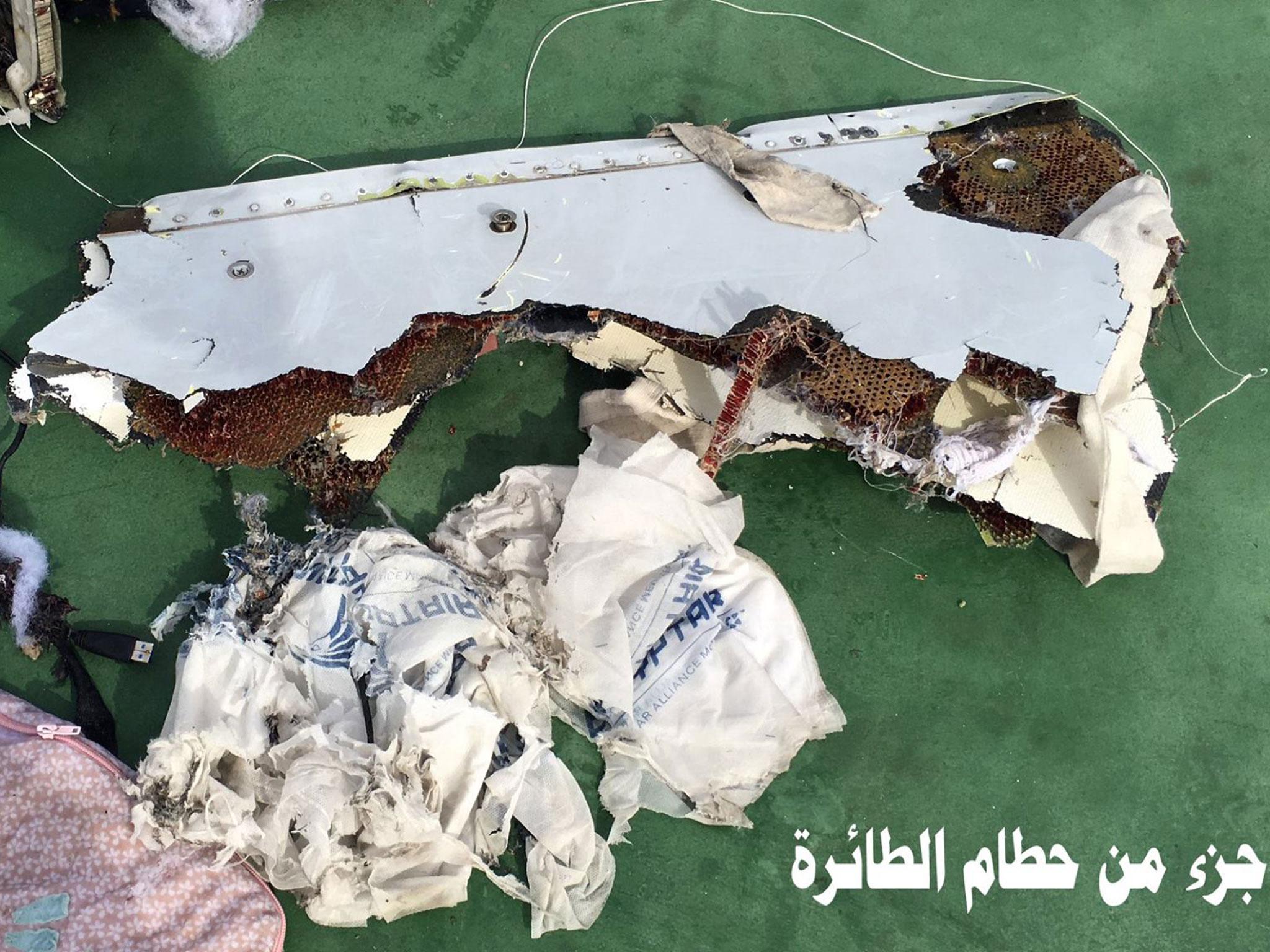EgyptAir flight MS804 crash 'caused by cockpit fire', French investigators find
France’s BEA investigation agency contradicts Egyptian claims that explosive residue was found on bodies

Your support helps us to tell the story
From reproductive rights to climate change to Big Tech, The Independent is on the ground when the story is developing. Whether it's investigating the financials of Elon Musk's pro-Trump PAC or producing our latest documentary, 'The A Word', which shines a light on the American women fighting for reproductive rights, we know how important it is to parse out the facts from the messaging.
At such a critical moment in US history, we need reporters on the ground. Your donation allows us to keep sending journalists to speak to both sides of the story.
The Independent is trusted by Americans across the entire political spectrum. And unlike many other quality news outlets, we choose not to lock Americans out of our reporting and analysis with paywalls. We believe quality journalism should be available to everyone, paid for by those who can afford it.
Your support makes all the difference.The 2016 crash of an EgyptAir flight that killed all 66 people on board was likely to have been caused by a cockpit fire, investigators have said.
The French BEA air accident investigation agency said that authorities in Egypt had apparently not followed up calls for further investigations and instead blamed an alleged bombing.
Egyptian officials have said traces of explosives were found on human remains retrieved from EgyptAir flight MS804, suggesting it was a malicious act.
“The BEA’s proposals concerning further work on the debris and recorded data were not, as far as the BEA knows, followed up. The technical elements of the investigation already collected by Egypt, including those provided by the BEA, are protected by the Egyptian judicial investigation,” the French statement said.
Twelve of those killed in the May 2016 crash were French nationals travelling from Paris to Cairo.
It is unusual for investigators to comment publicly on a case being led by their counterparts in another country. Any disagreement would usually be expressed confidentially, with public comments indicating serious divergences.
“The BEA considers that the most likely hypothesis is that a fire broke out in the cockpit while the aeroplane was flying at its cruise altitude and that the fire spread rapidly resulting in the loss of control of the aeroplane,” the statement said.
The statement noted that Egyptian investigators had not published their final report, adding that the BEA was ready to resume work with Egyptian authorities. International regulations stipulate a report should come out within a year of a crash.
EgyptAir was not immediately available for comment on the case, which was handed to judicial authorities after the Egyptian assessment of the cause given in December 2016.
An official at Egypt’s aviation ministry, who asked to remain anonymous, said the public prosecutor was still investigating and was responsible for the case because of the potential for criminal charges.
A person familiar with the matter, who spoke on condition of anonymity, said: “There are political differences between France and Egypt over this investigation.” The source declined to give further details.
France and Egypt have in the past disagreed over how crash investigations are handled.
After a bomb brought down a Metrojet plane carrying Russian holidaymakers home from the Red Sea resort of Sharm al-Sheikh in October 2015, killing all 224 people on board, Egyptian officials initially denied widely held suspicions that a bomb caused the crash.
Neither France nor the United States suspected a bomb in the EgyptAir crash, however.
Isis claimed responsibility for the Metrojet bomb, saying it smuggled aboard explosives in a soft drink can.
Reuters
Join our commenting forum
Join thought-provoking conversations, follow other Independent readers and see their replies
Comments